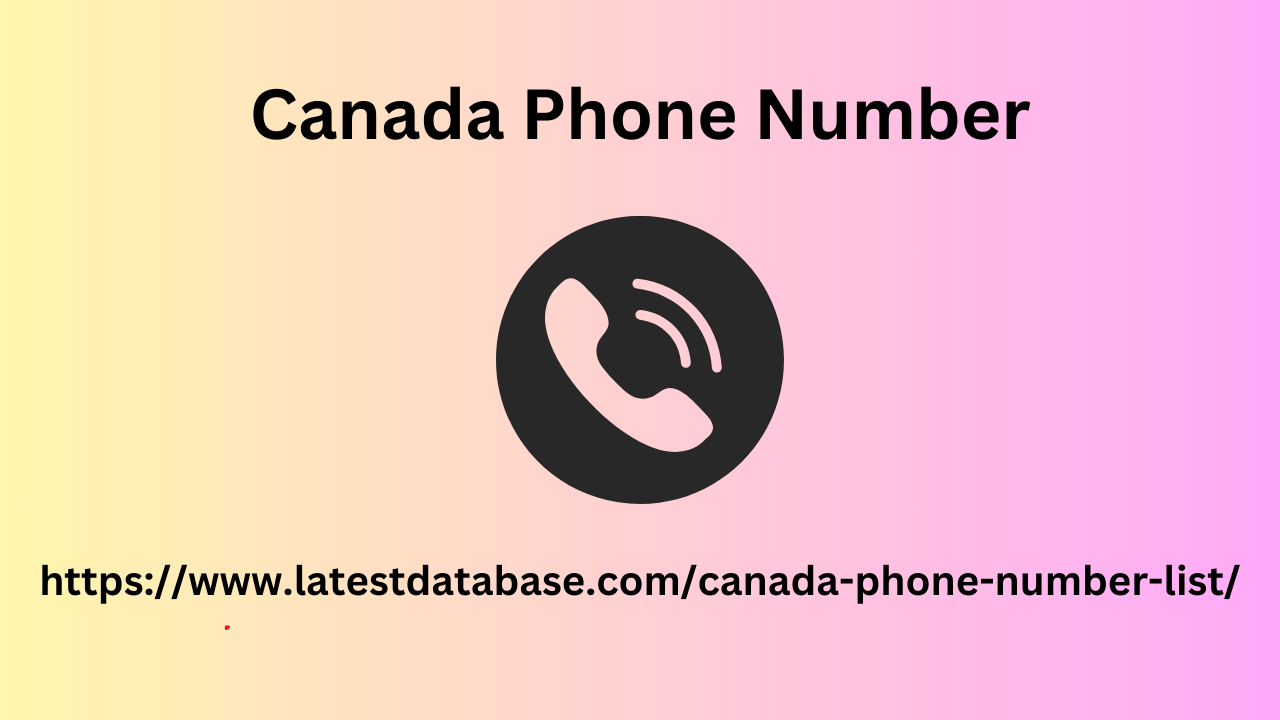Post by account_disabled on Mar 12, 2024 6:46:57 GMT
Today there are countless ways to communicate between friends and relatives. The phone call has given way to the voice of Whatsapp or the message on Telegram and Messenger, or in other very popular platforms such as Instagram or TikTok. I remember that until a few years ago the queen of professional messaging was email, a tool whose birth dates back to 1971, when Ray Tomlinson installed a system on the ARPANET capable of exchanging email messages between the various universities. Now I observe that this technology is used less and less in the professional field, so much so that it is quite common to find five-minute voice messages from clients or colleagues in my Whatsapp messages. What between friends; given the superficial nature of communication it doesn't bother me, in a professional context I don't tolerate it.
Iadmit, I am increasingly having difficulty communicating Canada Phone Number with the professionals I work with, as they inundate me with vowels in which the information - when it goes well - is 20% of the message. No one anymore makes the effort to make the information concise and clean, so that the interlocutor can quickly understand the problem, but we often speak without getting to the point, filling it with useless or negligible details. Then, given the nature of the content and the explosion of means in which it is propagated, the management and administration of these messages becomes increasingly complex. It is no longer known who sent them, what was previously communicated or where they were sent, making me waste a lot of time in tracing the conversations which, if they contain useful information, will have to be "scrambled".

These professionals think they are optimizing their time, not yours in which you will have to organize information to keep track of what you have previously said to each other. Email has always been the perfect tool for keeping track of conversations, managing response priorities and for doing a text or sender search. It is a tool in which I can articulate meaningful sentences and package answers so that the information arrives without wasting the interlocutor's time. To do this, the sender of the email must invest his time in making himself as clear as possible. This is a form of respect for the other person, since we are all working hard knowing that time is precious: it means that I care about your work and whoever reads is worthy of respect .
Iadmit, I am increasingly having difficulty communicating Canada Phone Number with the professionals I work with, as they inundate me with vowels in which the information - when it goes well - is 20% of the message. No one anymore makes the effort to make the information concise and clean, so that the interlocutor can quickly understand the problem, but we often speak without getting to the point, filling it with useless or negligible details. Then, given the nature of the content and the explosion of means in which it is propagated, the management and administration of these messages becomes increasingly complex. It is no longer known who sent them, what was previously communicated or where they were sent, making me waste a lot of time in tracing the conversations which, if they contain useful information, will have to be "scrambled".

These professionals think they are optimizing their time, not yours in which you will have to organize information to keep track of what you have previously said to each other. Email has always been the perfect tool for keeping track of conversations, managing response priorities and for doing a text or sender search. It is a tool in which I can articulate meaningful sentences and package answers so that the information arrives without wasting the interlocutor's time. To do this, the sender of the email must invest his time in making himself as clear as possible. This is a form of respect for the other person, since we are all working hard knowing that time is precious: it means that I care about your work and whoever reads is worthy of respect .





